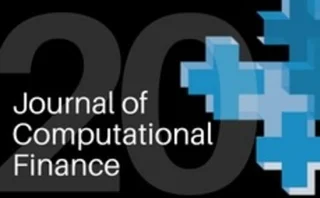Gap risk
Basel stops short on wrong-way risk
New guidelines a step in right direction, but experts warn they won’t prevent another Archegos
Pricing in the gap risk of mini-futures
Mini-futures need to be priced and hedged taking sudden jumps into account
Range accruals under spotlight as Taiwan prepares for FRTB
Taiwanese banks review viability of products offering options on long-dated rates
Wrong-way risk of interest rate instruments
This paper investigates wrong-way risk effects on the pricing of counterparty credit risk for interest rate instruments.
CVA study highlights scale and causes of wrong-way risk
Researchers advise including correlations both with rate level and volatility in CVA calculations
Hong Kong stock slump hits CBBC desks
Surging volume and rising leverage expose issuers to gap risk on hedges
Gap risk KVA and repo pricing
Wujiang Lou introduces a reserve capital approach to the hedging error in the BSM model
Adjusting exponential Lévy models toward the simultaneous calibration of market prices for crash cliquets
The authors propose so-called tail thinning strategies that may be employed to better connect the calibrated models to the crash cliquets prices.
Brexit hedging leaves Ficc books unbalanced
Market-making desks struggling to recycle some client flows ahead of referendum
Risk managing structured products in a falling market
Capital-at-risk products with European-style barriers inherently more vulnerable in a downturn
Gap trade interest could salvage dealer risk recycling channel
Renewed interest in gap risk trades might resurrect the defunct trading channel previously used by structured products issuers as a means to recycle unwanted gap risk, say dealers.
GFI: financials and telecoms most active CDSs
Credit default swaps (CDSs) referenced to financial services and telecommunications firms were the most active in the global credit default swap market in January, according to New York-based interdealer broker GFI.
A cost/benefit approach to Basel II
The cost of implementing Basel II could put banks at a competitive disadvantage compared with non-banks, and spur them to ‘de-bank’ to avoid this regulatory burden. Harry Stordel and Andrew Cross say regulators must look at the provisions from a cost…












